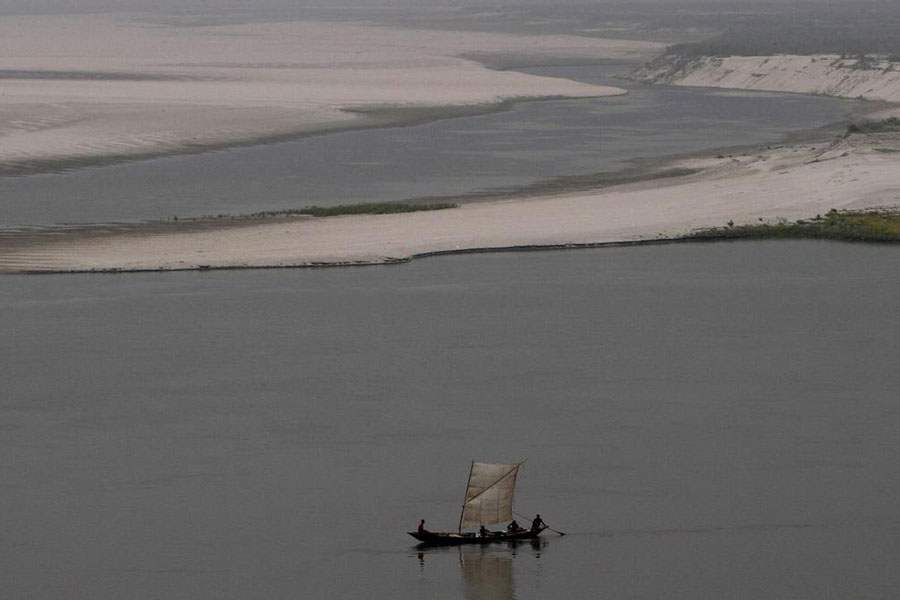
Published :
Updated :

Bangladesh has expressed its concern over China’s construction of a dam on the Brahmaputra River during a bilateral meeting held in Beijing on January 21.
Foreign adviser Touhid Hossain, who led the Bangladesh delegation, disclosed this on Sunday, adding that China assured Bangladesh that dam’s construction would not adversely affect it.
In December last year, the Chinese government sanctioned the development of a hydropower facility on the lower section of the Yarlung Zangbo River, the Tibetan name for the Brahmaputra.
The $137 billion mega infrastructure project, aimed at building the world’s largest dam, has raised concerns among downstream countries, including India and Bangladesh, over potential impacts on water flow.
Responding to a question, Mr Hossain said that a comparative analysis of foreign loans provided to Bangladesh showed that China’s lending rate is not that much higher; rather, the lending rates of many other development partners are higher that China’s.
“So, this issue cannot be pushed strongly. However, when we raised the issue, they assured us they would consider it,” he said.
Replying to another question, he said that the matter of Chief Adviser Muhammad Yunus’s visit to Beijing was not discussed during the meeting.
The foreign adviser also mentioned that China was interested in helping Bangladesh building a big and modern hospital in Bangladesh.
“We are looking for lands in Purbachal Town for this project,” he said, adding that China is also keen to support another tertiary-level hospital under a private-public partnership model.
During the meeting, Chinese Foreign Minister Wang Yi asked Bangladesh to consider joining President Xi’s three global initiatives, namely, GDI, GSI and GCI, and in response, Bangladesh conveyed its intention to examine the proposals and remain engaged with China on these issues, the adviser said.
Both the countries also agreed to collaborate on each other’s candidature in multilateral forums, including the United Nations.
The bilateral talks concluded with the signing of the ‘Implementation Plan of the MoU on Exchange of Hydrological Information Sharing of the Yaluzangbu-Jamuna River’.
Mr Hossain noted that the MoU on water management cooperation could not be renewed as both sides intended to add some new clauses to the existing agreement.
During his visit, the foreign adviser also had a meeting with the Minister of International Department of Chinese Communist Party.
They discussed Chinese-funded development projects in Bangladesh and the reform initiatives of Bangladesh’s interim government.
The Chinese minister reaffirmed China’s continued support for the interim government and a peaceful transition to democracy through a free, fair and participatory election.
Mr Hossain during his China trip from January 21 to 24 also held a meeting with the Chairman of China International Development Cooperation Agency (CIDCA) and discussed issues related to bilateral economic cooperation.
mirmostafiz@yahoo.com


 For all latest news, follow The Financial Express Google News channel.
For all latest news, follow The Financial Express Google News channel.